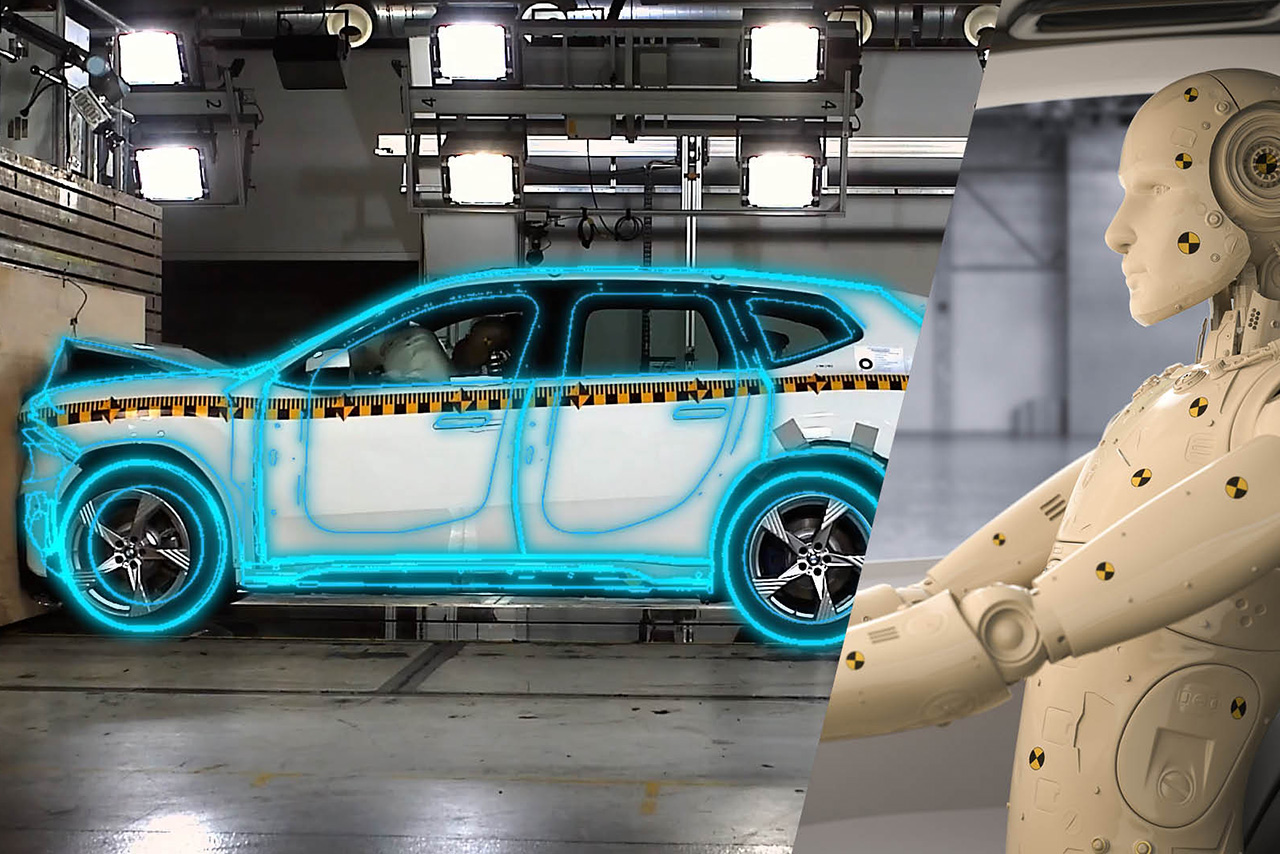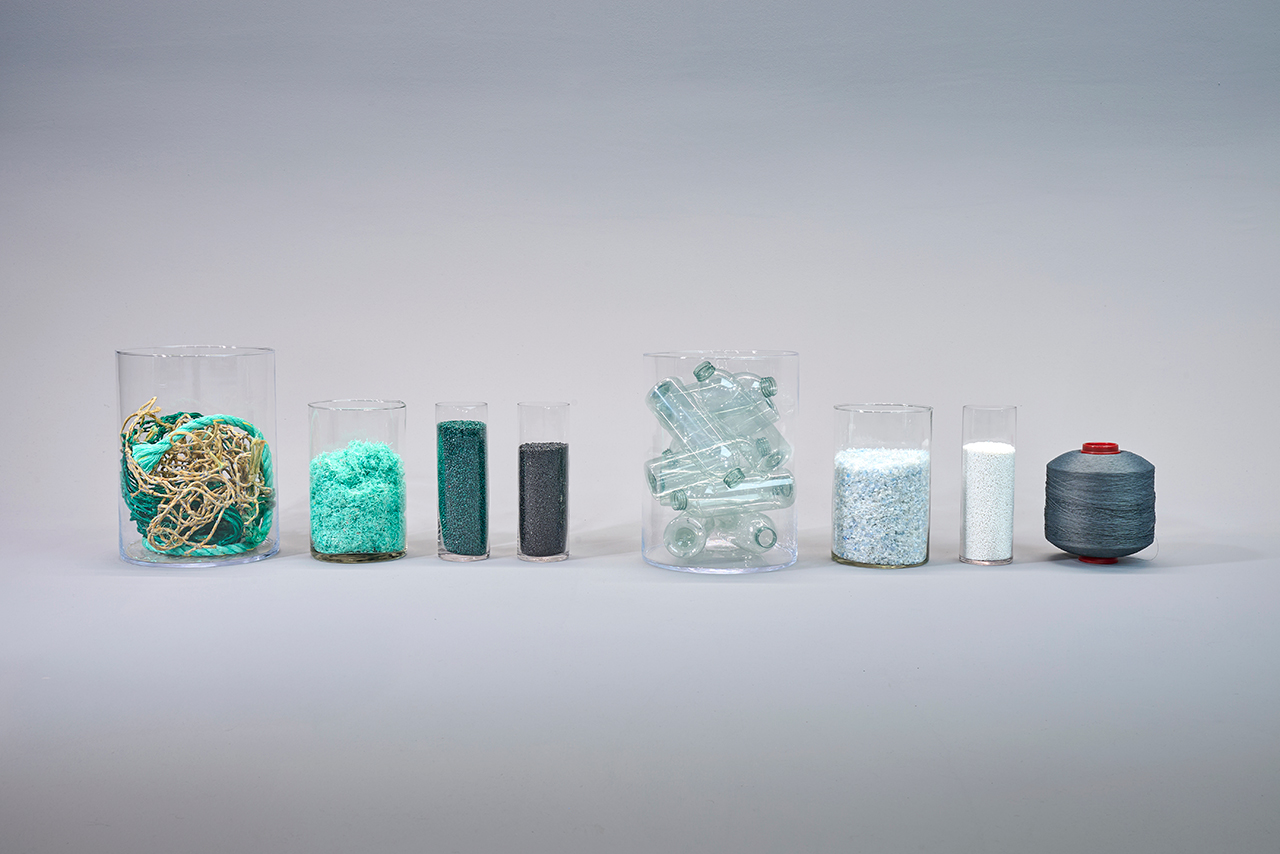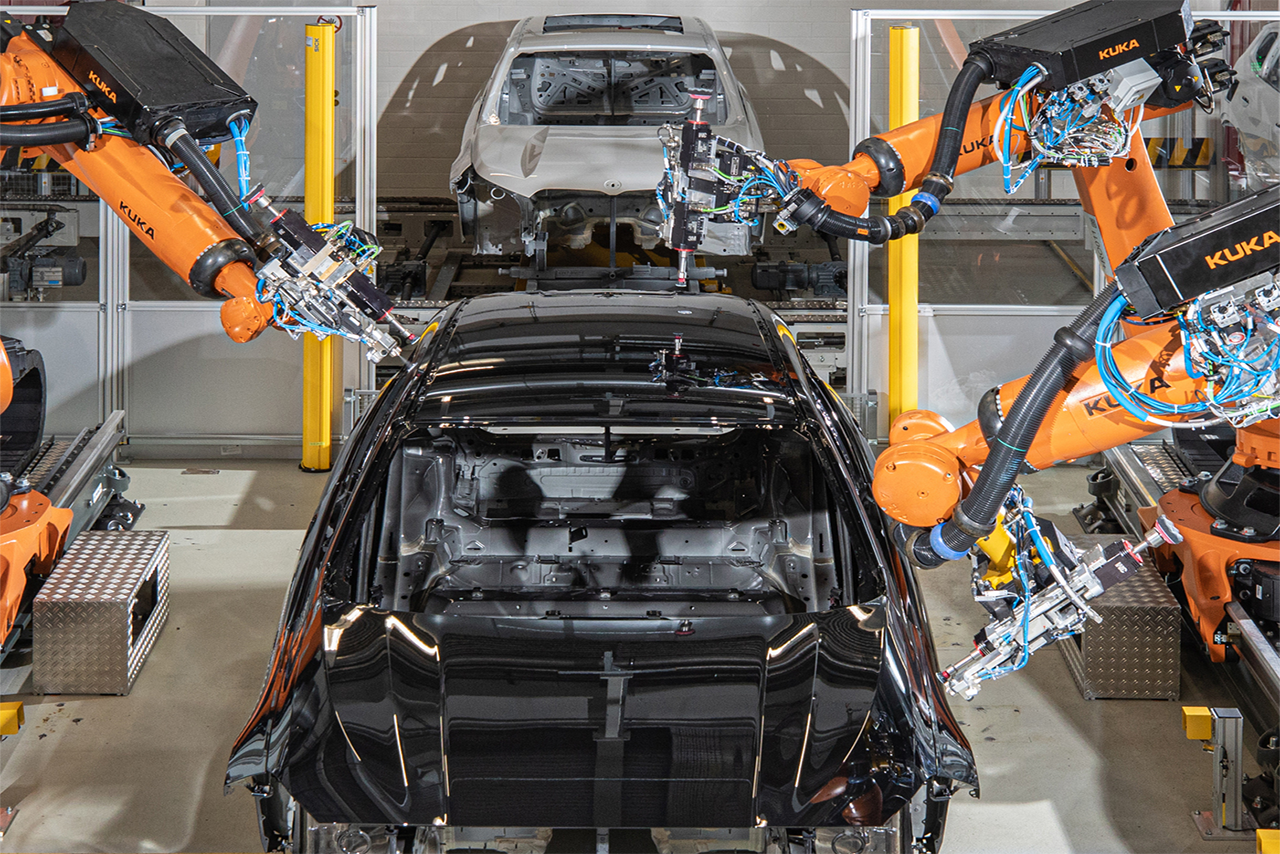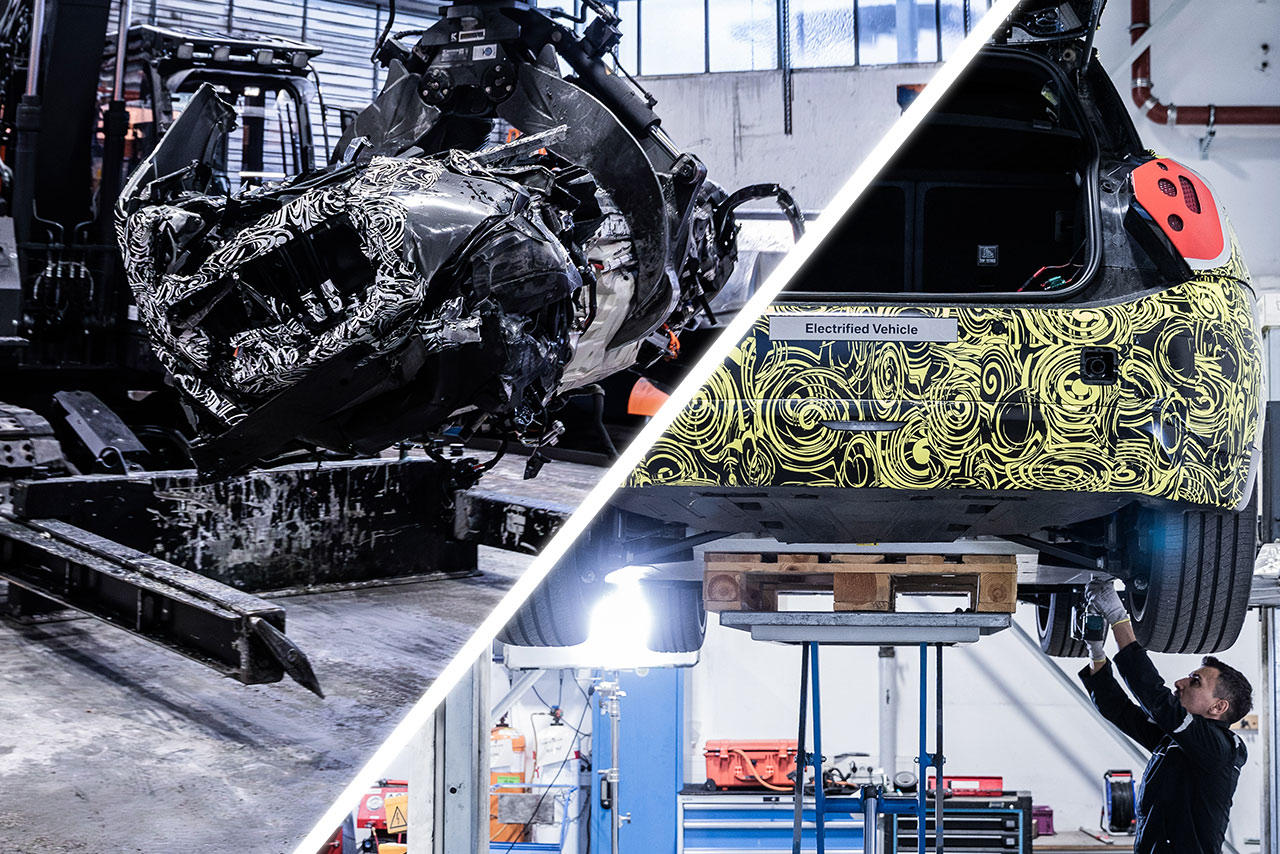The BMW Group is working flat out to develop sustainable solutions for production and remain relevant in the future: at BMW Group Plants Dingolfing and Regensburg, in Bavaria, the paint shops will soon work entirely with dry separation by limestone powder. All four paint lines at Dingolfing have already been converted, and the first of the two in Regensburg started dry separation in early 2024. The second Regensburg line is set to follow in August 2025. At Dingolfing and Regensburg, dry separation already saves 17 million litres of water and some 17,400 megawatt-hours of energy a year – cutting CO2 emissions by more than 5,000 tonnes in the process.
BMW Group Plants Dingolfing and Regensburg, then, are setting new standards in resource conservation and environmental protection. The paint shop in Dingolfing was the first in the company’s global production network to switch completely to dry separation with limestone powder, upgrading all four paint lines during ongoing operations in the space of two years. The same is now happening at Plant Regensburg, where one of the two basic paint lines was converted by the middle of January this year and the second will follow in August 2025.
Given that painting is the most energy-intensive process in vehicle production, the impact of these measures on the carbon footprint of the two plants is significant. Anton Kronseder, head of the paint shop in Dingolfing: “Switching to dry separation takes us one step closer to achieving the BMW Group’s goal of cutting CO2 emissions across the vehicle lifecycle by 40 percent by 2030.”
To put that into numbers: with the new process in place, the two plants are already saving a total of 17 million litres of water annually – enough to supply almost 100 families of four for an entire year. Also, because it works with recirculated air, dry separation saves 17,400 megawatt-hours of heating energy a year and more than 5,000 tonnes of CO2 emissions as a result. In addition, the limestone that’s used as a binder is recycled as feedstock for the construction materials industry.
Although Dingolfing was the first paint shop to be converted, the new technology was actually first used at BMW Group Plant Regensburg, where clear-coat application on the two lines was converted back in 2010. “Back then, dry separation with limestone powder was a first not just at the BMW Group but in the entire automotive industry,” explained Dr Jürgen Stiegler, head of the paint shop in Regensburg.

















